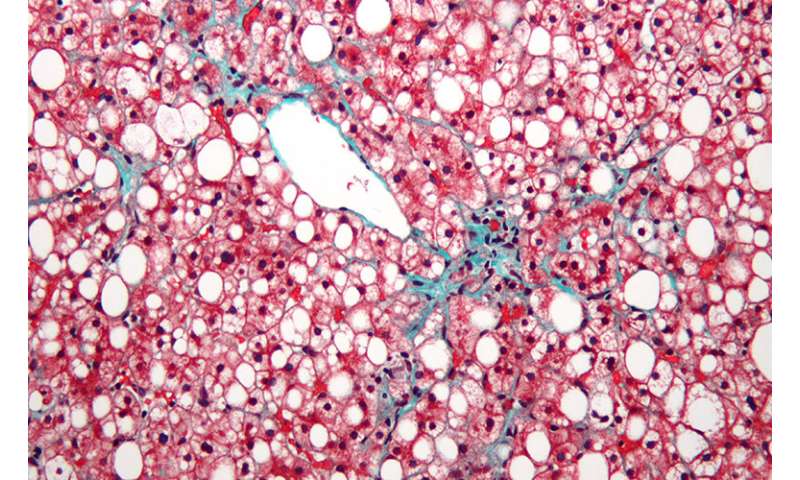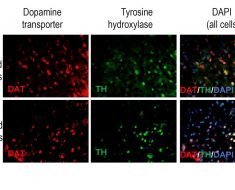
Polycystic hepatorenal diseases are hereditary genetic disorders characterized by the progressive development of multiple symptomatic cysts in the kidneys and/or liver that may cause alterations in the function of those organs and/or complications associated with their growth. Right now, there are no effective pharmacological treatments and the only curative option is organ transplant.
Researchers at the University of the Basque Country (UPV/EHU) led by Dr. Fernando Cossío and collaborators at the Biodonostia Institute of Health Research, led by Ikerbasque research fellow Dr. Jesús M. Bañales, have worked on the development of new drugs that have proven to be effective in reducing the growth of hepatic and renal cysts in experimental models of this disease, which could be of huge clinical significance. Researchers at the University of Salamanca, led by Dr. José J. G. Marín, at the Idibell Institute of Catalonia, led by Dr. Manel Esteller, and at the Hormel Institute of Minnesota (U.S.), headed by Dr. Sergio Gradilone, have collaborated in this multidisciplinary project led by the two Basque institutions.
The drugs are based on the structure of ursodeoxycholic acid (UDCA), a bile acid present in the body at a low concentration and which has protective properties for the liver. Its administration is recommended for treating specific liver diseases. The researchers studied the structure and properties of this molecule to design and synthesise a family of chemical derivatives geared toward inhibiting a key protein responsible for encouraging the growth of hepatorenal cysts. The results have shown that these new drugs are capable of blocking the growth of hepatic and renal cysts in an animal model of this disease.
Source: Read Full Article





